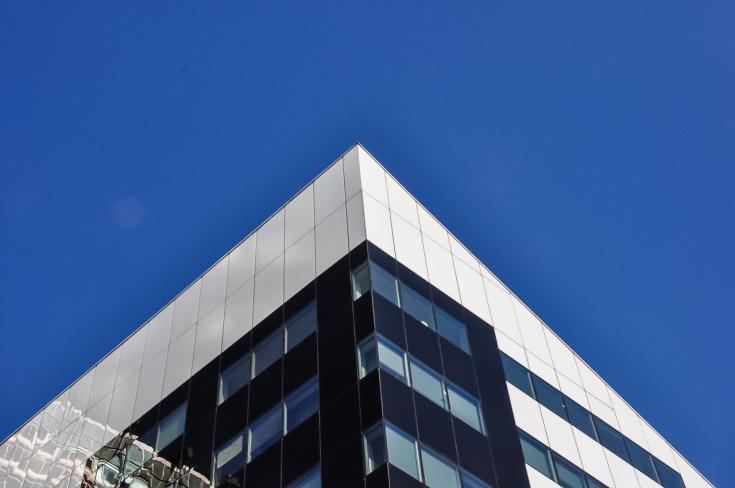How to turn the theory of industry 5.0 into practice

On 22 September 2022, the Policy Learning Platform hosted a webinar on Industry 5.0.
Industry 5.0 is a concept promoted by the European Commission to address the need for a new industrial paradigm, beyond Industry 4.0, which has become more and more necessary over the years of increasingly complex and pressing economic and societal challenges, such as:
- Climate change and the collapse of biodiversity,
- Resource scarcity,
- Global shocks such as the COVID-19 pandemic and more recently the war in Ukraine.
It complements the existing "Industry 4.0" approach by specifically putting research and innovation at the service of the transition to a sustainable, human-centric and resilient European industry.
The objective of the webinar was to help members of the Interreg Europe community to get more familiar with this new concept and to illustrate it with examples of innovative policies and practices fitting to the concept of Industry 5.0.
You can watch the recording and access the presentations below.
Webinar agenda
Concept and moderation of the webinar by Luc Schmerber and Rene Tonnisson, Thematic Experts of SME competitiveness.
00:01:04 Introduction by Rene Tonnisson to the topic
00:05:09 Keynote speech by Sean O'Reagain, Head of Industry 5.0 Unit, European Commission on the Industry 5.0 paradigm and EC's industrial policy
00:29:27 Q&A: What are the principals of Indudstry 5.0?
00:30:09 Q&A: Will there at one point be a European scorecard or something similar?
00:32:19 Q&A: What is the role and the potential of PhD students to bring into companies? Is it difficult for PhD students to sell their skills to industrial actors?
00:34:12 Q&A: What is the set of skills that students of the next generation should have?
00:38:23 Presentation by Kristiina Jokelainen from Regional Council of Lapland on Fostering the adoption of the Green Transition and Digitalisation.
00:59:16 Q&A: Concerning the transition and support you provide, you will build up and emulate the existing smart specialistian strategy, digital innovation hub and the green deal?
01:03:05 Presentation by Sergio Martínez Pérez, Economic Development Department, Government of Catalonia on Territorial shared agendas to accelerate the green and digital transitions
01:17:50 Q&A: Can you give an example of social agents that have participated in the process?
01:18:47 Q&A: When dealing with SMEs and twin transition, which aspects related to Industry 5.0 make companies more prepared to attract investments?
01:21:07 Presentation by Oliver Kuschel from ANTHROPIA GmbH, Germany on the Impact Factory
01:36:08 Q&A: How many (funded) start-ups existed 2 years after the launch?
01:37:27 Q&A: Do you any plans to expand the programme or community at European level?
Key takeaways
- From Sean O’Reagan, European Commission, we learned that Industry 5.0 approach is based on three main pillars – human centric, sustainable and resilient – and what those pillars mean for future policy development on European, national and regional levels.
- From Kristiina Jokelainen, Lapland Region in Finland, we learned how fostering the adoption of the green and digital transition on the regional level contributes to the achievement of goals set by the Industry 5.0 paradigm and how it goes beyond Industry 4.0 goals.
- From Sergio Martinez Perez, Catalonian Region in Spain, we learned how smart specialisation strategies can be connected to Industry 5.0 paradigm and how can education and research activities be better tailored and used for supporting the implementation of the main goals of Industry 5.0.
- From Oliver Kuschel, Duisburg, Germany, we learned the concept of The donut economy, which provides a vision of our industry that aims beyond efficiency and productivity as the sole goals and reinforces the role and the contribution of industry to society and ecology and how this concept is implemented in the Impact Factory in Duisburg.
Keynote speech by Sean O'Reagain Industry 5.0 paradigm and EU's industrial policy
Keynote speech by Sean O'Reagain Industry 5.0 paradigm and EU's industrial policy
Presentation by Sergio Martínez on Territorial Shared Agendas to accelerate Green and Digital Transitions
Presentation by Sergio Martínez on Territorial Shared Agendas to accelerate Green and Digital Transitions
Presentation by Oliver Kuschel on the Impact Factory
Presentation by Oliver Kuschel on the Impact Factory
Presentation by Kristiina Jokelainen on Fostering the Adoption of the Green Transition and Digitalization
Presentation by Kristiina Jokelainen on Fostering the Adoption of the Green Transition and Digitalization
